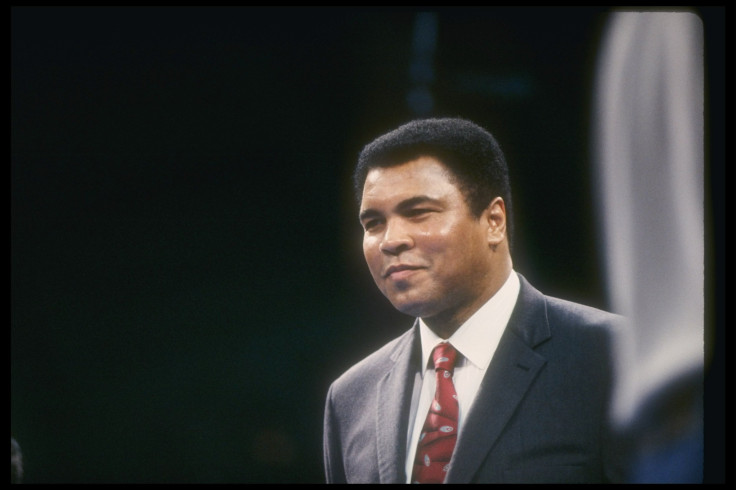Muhammad Ali First Death Anniversary: Facts, Quotes About ‘The Greatest’

It has been a year since boxing legend Muhammad Ali died at the age of 74. The cause of his death was revealed to be septic shock.
Ali — widely known as “the Greatest” — was born Cassius Marcellus Clay Jr. on Jan. 17, 1942, in Louisville, Kentucky. He made his professional debut Oct. 29, 1960, when he defeated his first professional boxing opponent, Tunney Hunsaker.
In 1964, Clay Jr. converted to Islam and joined the Nation of Islam. After conversion, he changed his name to Muhammad Ali, and in 1967, he refused to report to the U.S. Army to fight in Vietnam in 1967.
“Man, I ain’t got no quarrel with them Viet Cong. No Viet Cong ever called me n-----,” Ali reasoned for not fighting in Vietnam.
Due to his refusal, he was convicted of draft evasion and was denied a license for boxing in the United States. Ali was also stripped of his passport and did not participate in boxing matches from March 1967 to October 1970. He, continued, however, to voice criticism against the Vietnam War and fought his conviction in court. The U.S. Supreme Court overturned the conviction in 1971.
Ali — also nicknamed “The Louisville Lip” — retired from professional boxing June 26, 1979. He battled Parkinson’s disease for about three decades. Throughout his career, he reportedly took about 29,000 punches to his head. This, doctors said, was possibly the cause of his Parkinson’s disease.
Following are some facts and quotes about and from Ali, gathered from CNN, History, USA Today and Brainy Quote.
- After graduating high school, Ali — who was 18 years old at the time — travelled to Rome and won the light heavyweight gold medal in the 1960 Summer Olympics. In his 1975 biography, he wrote he threw the medal off a bridge into the Ohio River after returning to Louisville to protest racism in the U.S. However, the account is disputed, with some people saying Ali lost the medal instead. During the 1996 Summer Olympics, he was given a replacement gold medal.
It's hard to be humble when you're as great as I am.
- In November 1990, Ali met then-Iraqi leader Saddam Hussein in Baghdad in a bid to negotiate the release of Americans held hostage in Iraq and Kuwait.
It isn’t the mountains ahead to climb that wear you out; it’s the pebble in your shoe.
- The following month, he accompanied 15 freed American hostages out of Iraq.
I hated every minute of training, but I said, 'Don't quit. Suffer now and live the rest of your life as a champion.'
- In February 1999, he became the first professional boxer to appear on a Wheaties cereal box.
He who is not courageous enough to take risks will accomplish nothing in life.
- In October 2000, he was appointed United Nations Messenger of Peace.
Silence is golden when you can't think of a good answer.
- In November 2005, Ali was presented with the Presidential Medal of Freedom by then-President George W. Bush.
Only a man who knows what it is like to be defeated can reach down to the bottom of his soul and come up with the extra ounce of power it takes to win when the match is even.
- Ali had Irish roots. His great-grandfather Abe Grady was an Irishman who came to U.S. and settled in Kentucky in the 1860s.
A man who has no imagination has no wings.
- The gloves Ali wore to defeat reigning heavyweight champion Sonny Liston in February 1964, earned him more money than the victory itself. The gloves were sold in 2015 to an anonymous buyer for $836,000, as opposed to Ali’s winning amount of $630,000.
"He’s (Liston) too ugly to be the world champ. The world champ should be pretty like me!
© Copyright IBTimes 2024. All rights reserved.






















